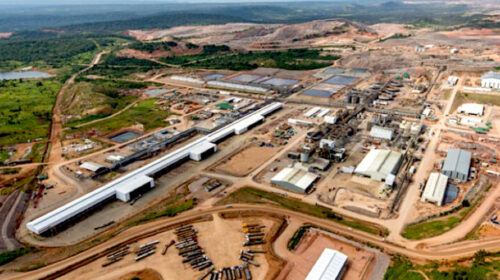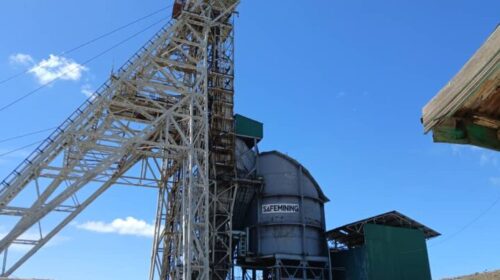PSG expects the commodity boom to last longer, and these are the stocks it’s buying
As mining companies post super profits, more investors are looking at the sector with new enthusiasm. Many asset managers increased their allocation to commodities at first sight of constrained supply, but the current commodity price boom has drawn even the attention of those who don’t ordinarily like miners and oil companies.
During PSG’s winter market update on Friday, Philip Wörz, investment analyst and fund manager at PSG Asset Management, pointed out that the price of copper has doubled since last year, crude oil prices are back around $70 a barrel, and even thermal coal has tripled since September 2020. The world is currently in the second bull market in commodities in 15 years.
Proponents of the super cycle say this trend is likely to last because of the strong demand for metals to support government’s infrastructure drives and the appeal of commodities like copper to decarbonise economies.
But some are caught in the cautionary thinking that commodities move in boom-and-bust cycles. They worry about the possibility of history repeating itself, said Wörz. In past boom periods, mining companies like Glencore and Anglo went on a spending spree to increase their production capacity to the point that they flooded the market and the prices started falling. Shareholders weren’t happy and called for the tightening of balance sheets, and because of this, investment in new capacity has fallen drastically in the industry.
But Wörz said PSG Asset Management thinks this time will be different. Because the industry isn’t spending enough on bringing new capacity, it expects prices to stay high for quite some time. Also, the rise of environmental activism means many companies are cautious about opening new plants and mines, contributing to the supply and demand imbalances.
But PSG is putting its money where it sees higher demand lasting long into the future.
“From a demand side, the strong target for carbon reduction will require the aggressive rollouts of renewables. This transition is of huge scale and will require a lot of quantities of greener metals such as copper, cobalt, nickel, lithium, graphite,” said Wörz.
Which commodity stocks is PSG looking at?
PSG Asset Management’s strategy has always been to look for under-appreciated stocks that it can buy at significant discounts. In the case of commodity stocks right now, it thinks Shell ticks all the boxes.
Wörz notes Shell has been in the crosshairs of ESG activists and hostile governments. The oil price shocks of 2020 also made income investors hate it, pulling down its share price.
“[But] Shell has got an incredible marketing business, an unparalleled footprint of service stations. They’ve got 46 000 points of presence around the world. It’s more locations than a Starbucks or McDonald’s. And this is meant to grow to 55 000 points of presence by 2025,” said Wörz.
Its liquified natural gas business is also huge and ready to serve a growing market.
The other commodity stock PSG is bullish on is Glencore. This is because the mining company is one of the largest low-cost producers of the green metals required for the energy transitions, such as copper, nickel and cobalt.
“Glencore, because of their regulatory investigations, has been trading at a big discount. But the company has taken the right steps to improve that. From a climate perspective, they’ve committed to getting to net-zero by 2050,” said Wörz.
SA Inc. stocks to look at
But the investment universe that PSG thinks is attractive expands beyond oil and mining companies. The asset management firm is known for its optimism on companies operating locally, i.e. SA Inc. stocks.
Shaun Le Roux, portfolio manager at PSG Asset Management, said local stocks that the company is buying include ACI, Naspers, Discovery and Imperial.
It likes South African mid-cap companies in general, calling them a “sweet spot” because large asset managers often overlook them, and their stocks are cheap. ACI, in particular, stands out because about two-thirds of its profits are generated from the explosives and chemicals business.
It is also buying shipping companies, particularly dry bulk companies, since no new ships are being built.
“We initially we took pain on these positions in the likes of a Grindrod shipping. But more recently, our investment thesis and started to pay off … We expect exceptional cash returns from most of these companies,” said Le Roux.
![]()





